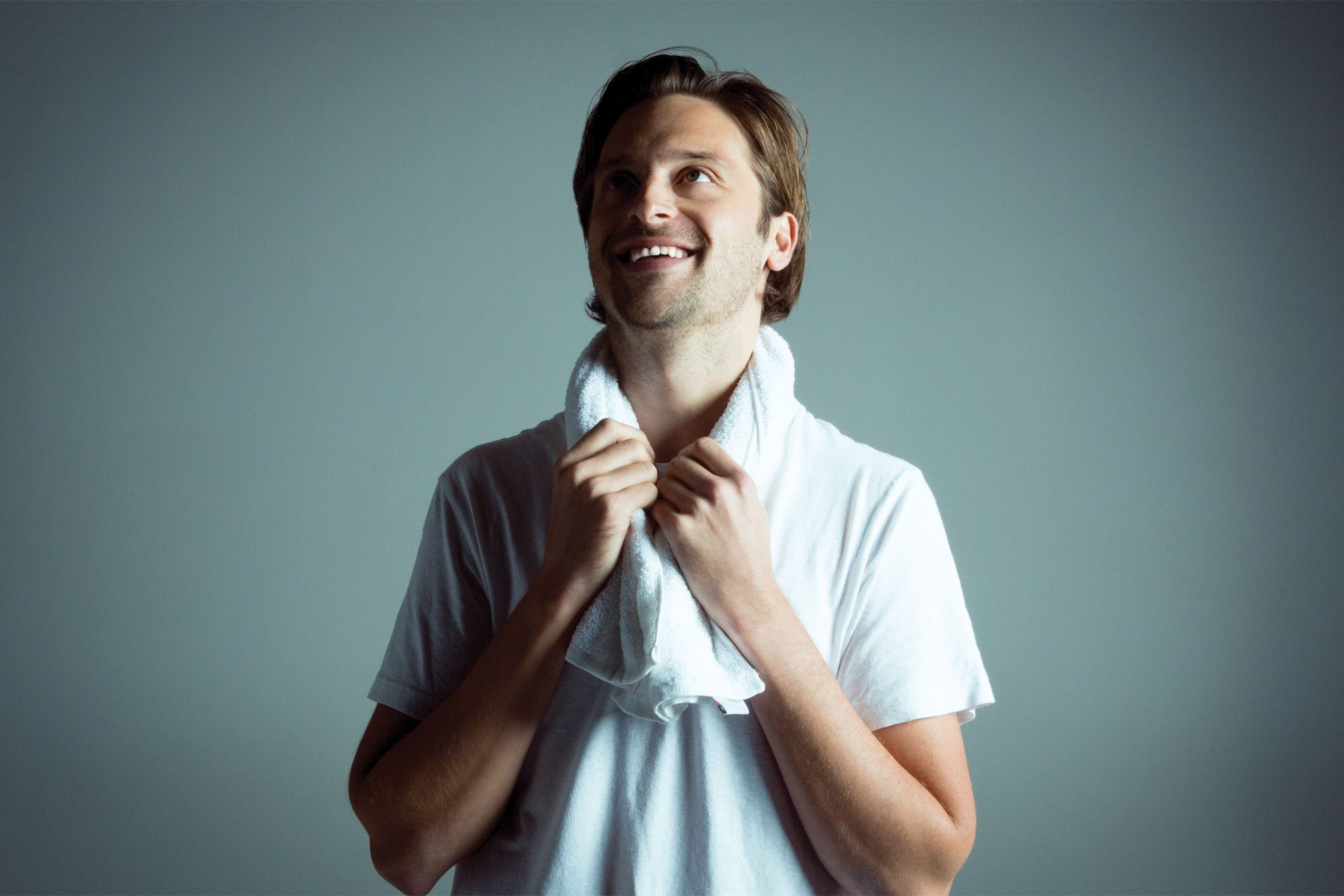 Artists
Artists
It's getting hot in here: Jeremy Underground talks 'Saunagate'
An exclusive interview with the man at the centre of 2017’s daftest dance music controversy
Jeremy Underground looks a little older than his 30 years. Not unhealthy – when we meet in his new booking agent’s office he’s as lean and fresh as someone who’s trained himself to run marathons and is now planning to attempt one of the harder stages of the Tour de France should be, and sports an immaculate white shirt and that kind of flowing hair that only the French seem able to master. But the worry lines and dark circles under his eyes don’t exactly speak of carefree youth and a life of leisure.
Clearly, a few of the more recent lines are courtesy of ‘Saunagate’. Potted version: 1) In September Jeremy was due to play an Abstrakt party in Edinburgh. 2) His contract required a hotel with gym and sauna, which the promoters couldn’t supply. 3) His agent went medieval on the promoters (“I am going to bite you!”) 4) The promoters leaked his threats. 5) Ribald Scottish clubbers’ humour erupted on social media. 6) Saunagate went viral and tipped over into hate-mail and threats against Jeremy. 7) The entire internet had to be hosed down to cool off. The multi-layered misunderstandings did lead, as Jeremy admits himself, to “some very, very funny responses”. But at the same time, he was a year on from a relationship breakup, midway through a major relocation – from Paris to rural Provence – and had just come off anti-depressants and anti-anxiety drugs for the first time since his teens, so the whole thing came very close to pushing him over the edge.
His sensitivity has been there all along, and is intimately tied into his love of music. Jérémy Fichon grew up in a Parisian suburb: “not a rich one, not poor... but I did not have a happy time – so it’s not an exaggeration to say music saved me, was a sanctuary.” Aged just 11 he first heard the proper NYC/New Jersey garage vibe of Charles McDougald’s ‘That’s Life’ played by DJ Deep on Paris’ Radio Nova, “and it was like seeing God. Honestly, I’m agnostic but with this one song I saw the light!”
He got his mum to take him to a record shop where he asked for “deep house” and got a compilation on Chicago’s Guidance label – “because in 1997 deep house meant deep house!” – and he hasn’t looked back since. By 15 (the year Jeremy’s mum died, followed by his father five years later), he was collecting records seriously, and DJing, but he was also self-medicating with alcohol for his depression and anxiety; before long he was prescribed Xanax and Paroxetine, quickly adding party drugs into the mix to boot.

His anxiety led to an awkward relationship with the gossipy, often exhibitionist Parisian scene: “All I wanted was to be with my few friends and hear great music,” he says; “I didn’t want to be known.” But at the same time, it fed into the exacting relationship with the music that made his name. The ‘golden age’ New York, New Jersey and Chicago house vibe became his safe place, and his OCD tendencies made him a completist collector and a perfectionist DJ, always seeking out the best vinyl copies and learning to mix them with the precision of his idols like Kerri Chandler and Masters At Work.
It’s this unshakeable fixation on musical culture and craft that defines ‘underground’ for Jeremy. It’s a word he’s so attached to he has it tattooed across the base of his neck – and it concerns him deeply when people laugh or say he’s not underground because he stays in four-star hotels. “If Nina Kraviz flies in private jets but plays Dance Mania records is she not under-ground? To my mind she is. If she started to play mindless tech-house or trying to pretend something false, then maybe not, but no – even if it’s not my choice of music, I know as a DJ she’s great. Jackmaster is underground. Dixon is underground. My friend Hunee has more fans – and more crazy fans – than me, yet he plays real strange Afrobeat and jazz. It’s not just music, it’s about your lifestyle, your interests, your thoughts: are you sincere, do you believe in something, do you fight for what you believe? It’s not just about being hidden or playing only in a basement.”
From house music, Jeremy worked his way backwards into soul and jazz, too – the fruits of which can be heard on last year’s ‘Beauty’ compilation. A fierce, borderline religious, focus built his reputation as a DJ and then that of his My Love Is Underground labels and parties. But it was also taking its toll. “One day I found myself in a toilet doing coke,” he says, “and I looked at myself – losing weight, not sleeping for two days – and thought, ‘This has to stop’.”
Exercise took the place of drink and drugs: “I was not a sporty guy, but I needed to do this, so I slowly went from running five minutes to running a marathon.” Running and cycling became his “only release” – which is why his DJ contract requests a gym and sauna. He sees a grim irony in the fact that some people who mocked this as diva behaviour think other DJs heroes for demanding hundreds of pounds worth of drugs, or racking up bills for missed flights.

Did he learn anything from Saunagate? “I learned I have to have a thicker skin,” he laughs. “And I learned that Facebook is the home of bullshit.” But beyond that it’s water under the bridge, and he hopes it will be understood by others as a silly fiasco: distinct from, say, the Ten Walls or Konstantin scandals. He refunded his fee, split with his agent (without getting bitten), and offered to play an Abstrakt night for free with a donation going to charity. They’ve not rebooked him yet, but they did call out those threatening and insulting Jeremy, saying that there was “nothing more that he could [have done] to help rectify the situation”.
Now, Jeremy’s slightly starstruck to be with a booking agency that also represents his heroes Kerri Chandler and David Morales. He recently played to 3,000 people in France, and is proud he didn’t compromise his set – “I still played deep soul to start, and built it up to trippy acid tracks: that’s what I mean about underground not having to mean hidden away” – and is in the process of bringing My Love Is Underground back as a label.
He’s settling into his new countryside lifestyle too – “though it’s pretty weird, there aren’t many 30-year-olds moving to the village!” – and in general counting his blessings. In person, he’s easy company, certainly not agitated, and seems reconciled with who he is: hard though the Saunagate reaction hit, he’s stayed off the antidepressants and can now comfortably have a glass or two of wine to unwind. But at the same time he has the air of someone who’ll always have the weight of the world on his shoulders. It’s easy to suggest that complaining DJs should try working in a call centre if they don’t like the ‘hardships’ of the lifestyle, but really this is a man so dedicated to his vocation that it’s hard to begrudge him an hour in the steam-room.
Joe Muggs is a freelance music journalist and regular contributor to Mixmag. Follow him on Twitter


